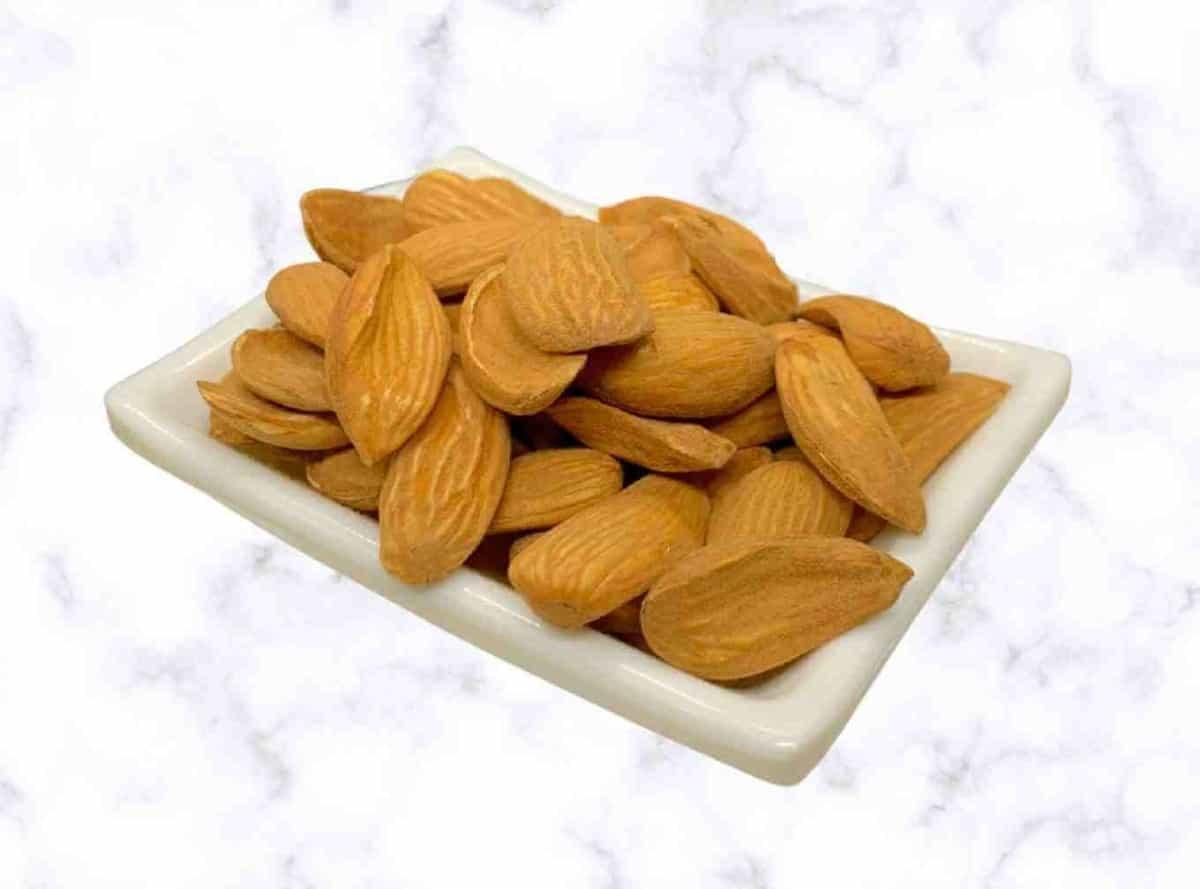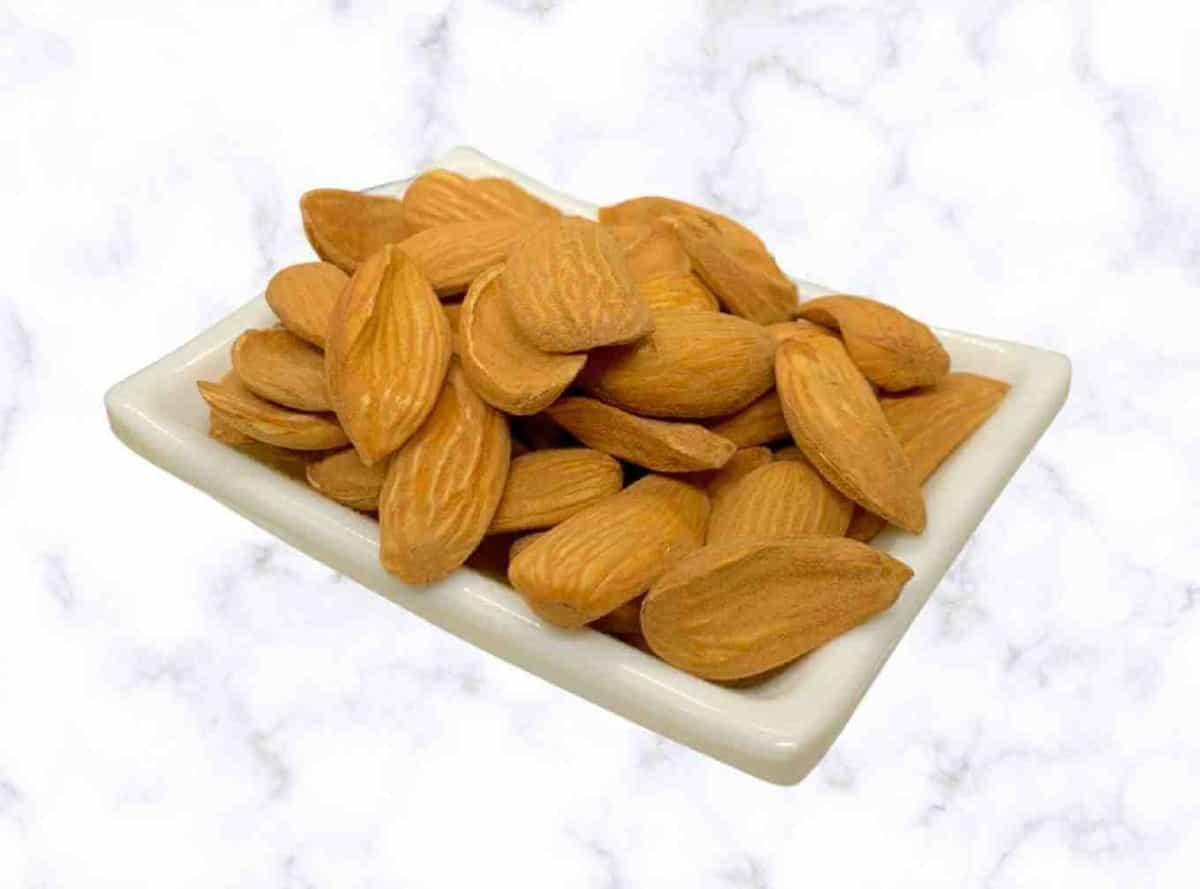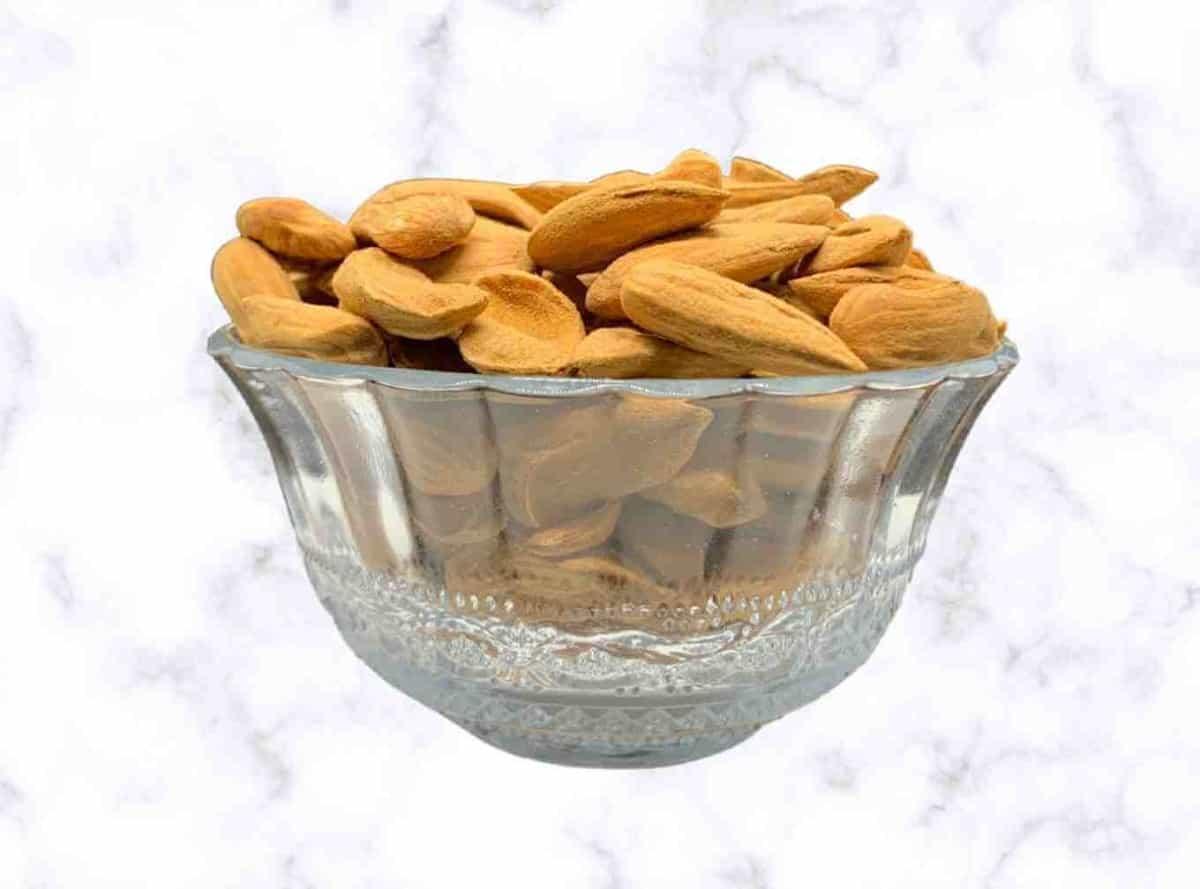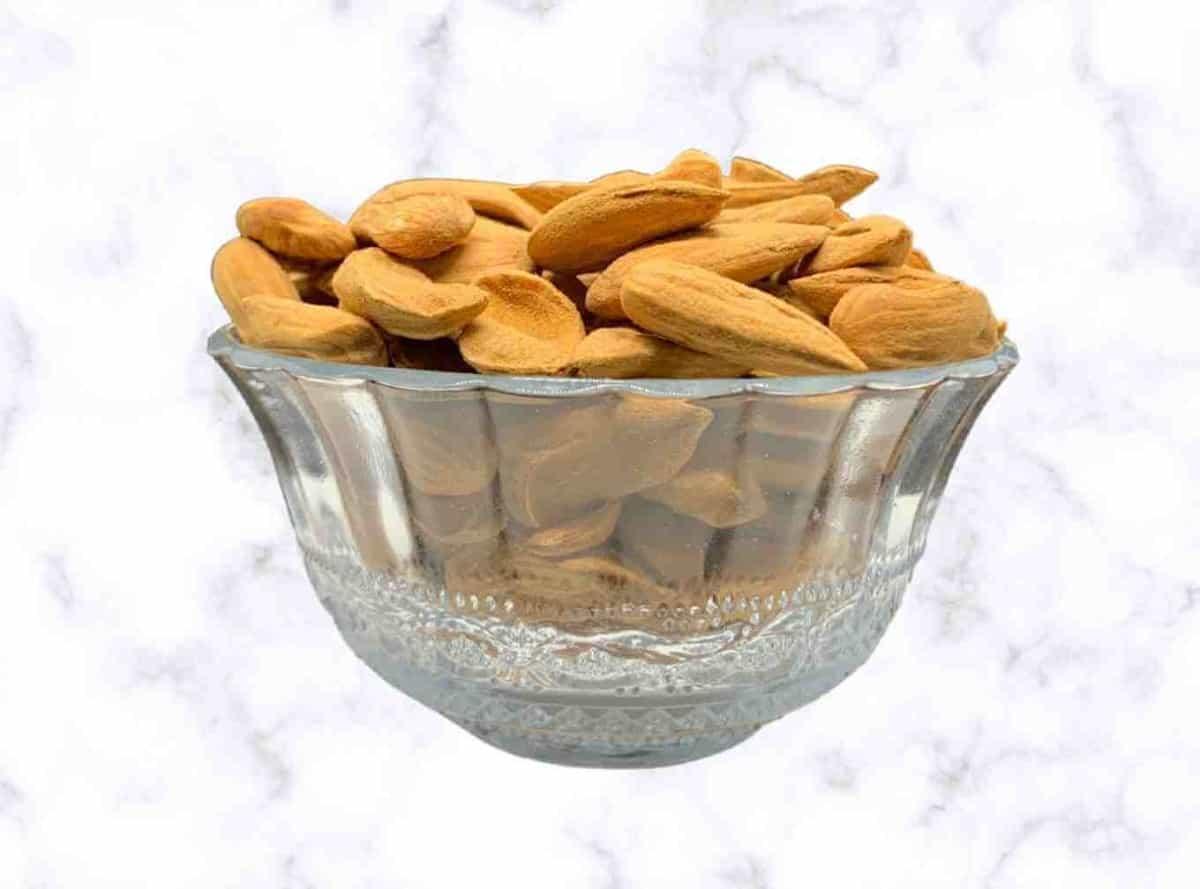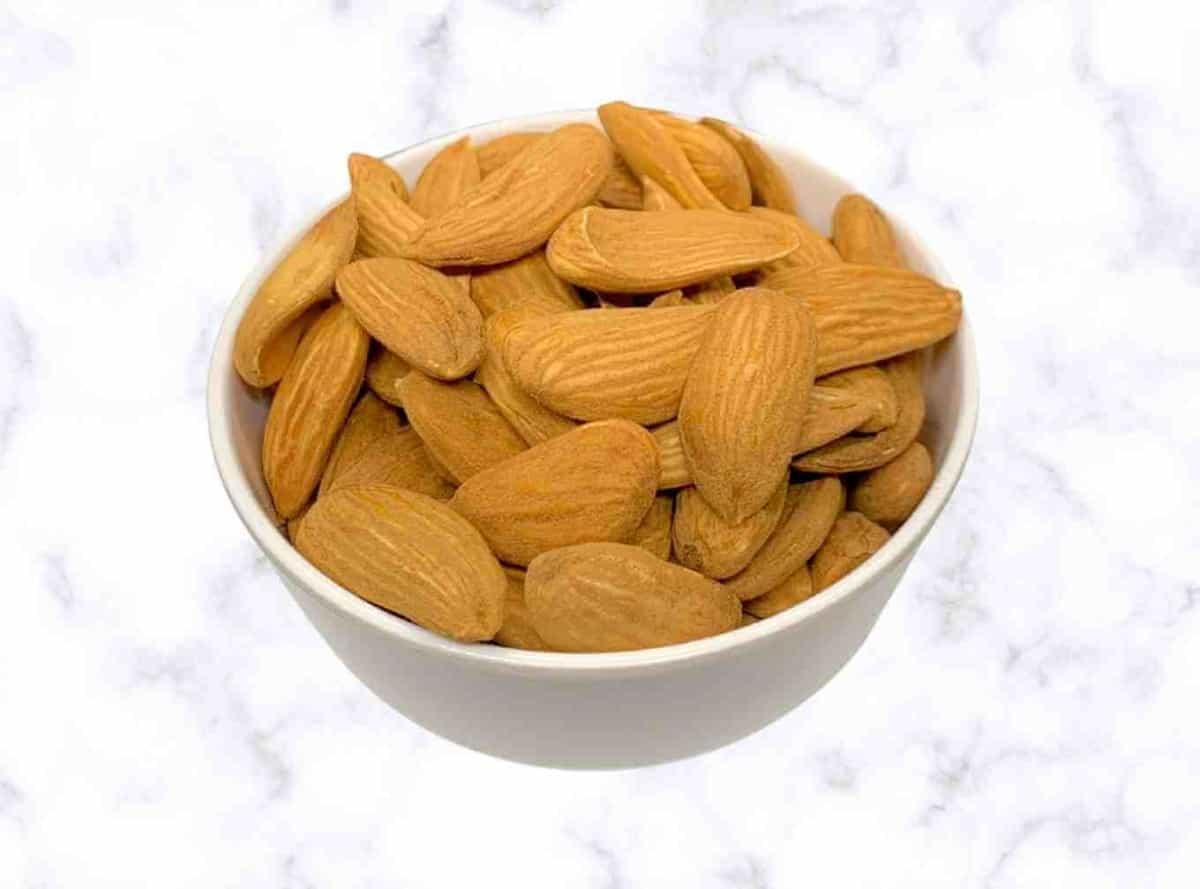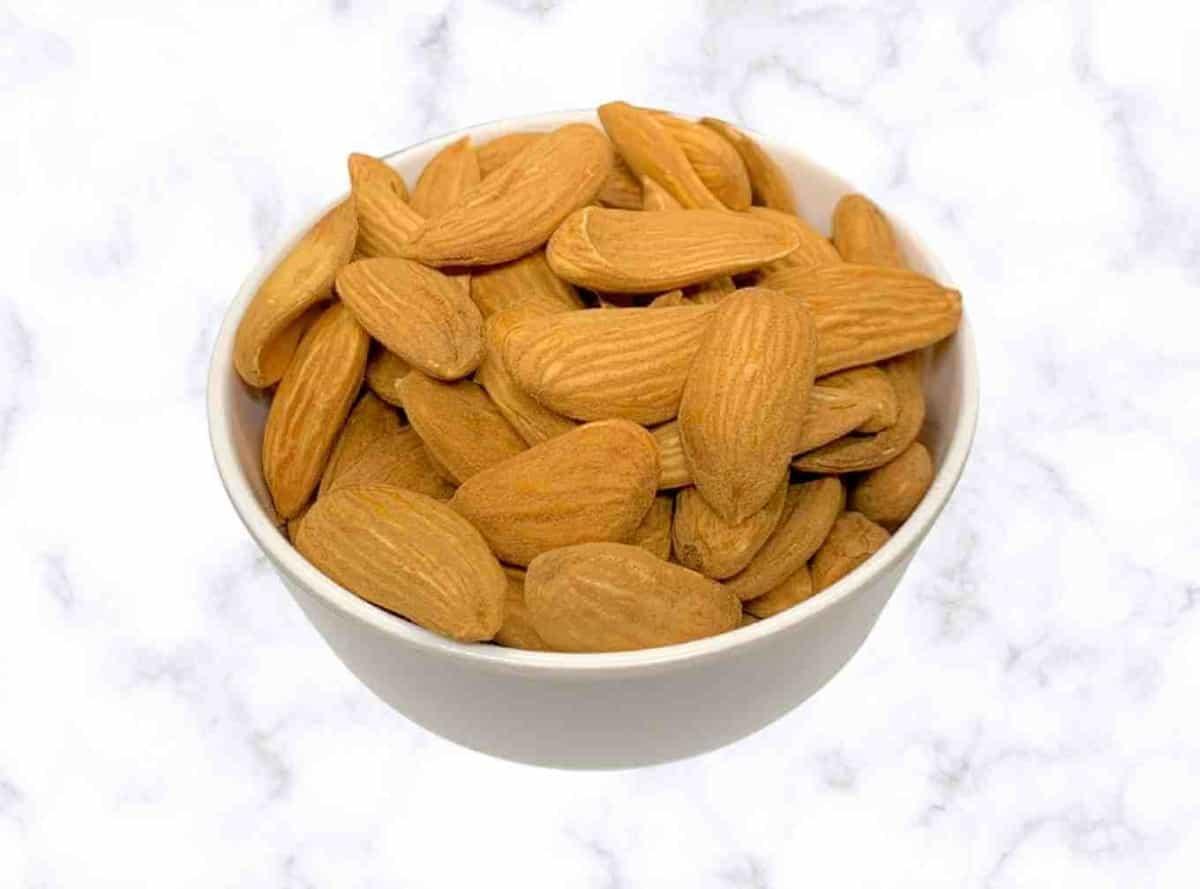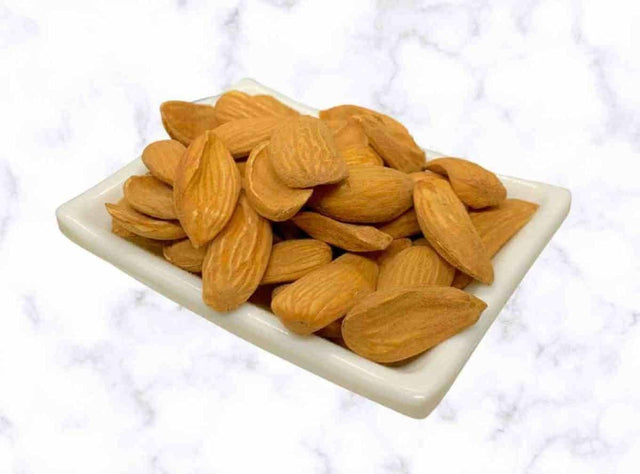Mamra Badam | Mamra Almonds
Mamra Badam | Mamra Almonds - 250g ಬ್ಯಾಕ್ಆರ್ಡರ್ ಮಾಡಲಾಗಿದೆ ಮತ್ತು ಅದು ಮತ್ತೆ ಸ್ಟಾಕ್ಗೆ ಬಂದ ತಕ್ಷಣ ರವಾನಿಸಲಾಗುತ್ತದೆ.
ಪಿಕಪ್ ಲಭ್ಯತೆಯನ್ನು ಲೋಡ್ ಮಾಡಲು ಸಾಧ್ಯವಾಗಲಿಲ್ಲ.
ವಿವರಣೆ
ವಿವರಣೆ
Mamra Almonds | Mamra Badam | Gurbandi Almonds
Mamra badam is identified by its small size and unusual concave shape.
Looking for a delicious way to improve your memory and cognitive abilities?
Look no further than Mamra Almonds!
Mamra Almonds | Mamra Badam
These unique almonds are prized for their small size and concave shape and have been shown to help improve memory power.
In addition to their cognitive benefits, it offers various other health advantages.
They are a good source of healthy fats, proteins, vitamins, and minerals, making them a perfect snack for improving overall health.
They are of superior quality and very expensive compared to the other almonds. Afghanistan and Iran are the places of origin.
मामरा बादाम | मामरा बदाम | ममरा बदाम
This Mamro Badams is not treated with preservatives and has low sugar and glycemic index. Vegans can enjoy it, too.
It is a completely natural product and is gluten-free as well.
Why Mamra Badam is costly
It is ideal for consumption while observing fast, and they are perfect for gifting your loved ones during various festivals, especially Diwali.
Gurbandi Almonds | Gurbandi Badam
Gurbandi badam is a type of almond that is native to Afghanistan.
Gurbandi almonds are smaller and more bitter than the almonds we are used to in the West.
However, they are packed with nutrients and have many benefits for our health.
Mamra Badam Health Benefits
-
Rich in Protein, Fiber & Minerals
-
Reduces Cholesterol
-
Good for Diabetes
-
Superfood
-
With all Goodness of Almonds
-
Improves Metabolic Rate
-
Excellent nutty source of Vitamin E
-
Heart friendly
-
Good for Bones and teeth
-
Weight Loss and Weight Gain
Mamra Badam During Pregnancy
They are recommended to be eaten during pregnancy due to various nutrients suitable for the baby's development.
Folic acid content is precise, which protects the baby from any defects.
How to eat Mamra Badam during Pregnancy?
Know how to eat Mamra Badam during Pregnancy for the best health results.
HOW TO USE IT
Consumed alone without cooking or adding to other products.
Soaked Mamra Badam
They often drink water or milk before consumption and enjoy sweet dishes.
They add a crunch and life to most authentic Indian desserts like Sheer kurma, kheer, laddu, etc.
Savory food is also garnished using almonds, a good companion to ice cream and chocolate.
ALLERGIC CONTENT
It is a potent allergic food that might trigger various immune reactions from moderate to critical.
Those who have Nuts allergies should stay away from this.
STORAGE AND SHELF LIFE
Almonds easily last up to half a year if stored without moisture. If you have opened the packet, make certain that you store them in an airtight container; otherwise, you will lose its crunchiness.
So why wait? Order your Mamra Almonds today and start reaping the benefits!
NUTRIENTS (100 GRAMS)
It contains a perfect amount of fiber along with healthy fat. It is known for Vitamin E and protein, packed with various antioxidants like phytic acid.
Minerals like magnesium, manganese, copper, and phosphorus are also present, along with small amounts of carbohydrates that are easy to digest.
|
Nutritional values per 100 Grams |
||
|
Fruit |
Mamra Badam |
|
|
Calories |
578.9 |
|
|
Glycemic Index |
0 |
|
|
|
Quantity |
% Daily Value* |
|
Energy |
308 KJ (74 kcal) |
|
|
Total Fat |
50 g |
74% |
|
Saturated fat |
3.9 g |
18% |
|
Polyunsaturated fat |
12.4 g |
27% |
|
Monounsaturated fat |
29.1 g |
45% |
|
Cholesterol |
0 mg |
0% |
|
Sodium |
1.2 mg |
0% |
|
Potassium |
732 mg |
19% |
|
Total Carbohydrate |
21.8 g |
6.9% |
|
Dietary fiber |
12.8 g |
54.2% |
|
Sugar |
4.8 g |
|
|
Protein |
21.9 g |
21% |
|
Vitamins |
||
|
Vitamin A equivalent |
0 μg |
0% |
|
beta-Carotene |
0 μg |
0% |
|
lutein zeaxanthin |
0 μg |
0% |
|
Thiamine (B1) |
0.211 mg |
14% |
|
Riboflavin (B2) |
1.014 mg |
32% |
|
Niacin (B3) |
3.385 mg |
24% |
|
Pantothenic acid (B5) |
0.647 mg |
12% |
|
Vitamin B6 |
0.13 mg |
0% |
|
Folate (B9) |
41 μg |
33% |
|
Vitamin B12 |
0 μg |
0% |
|
Choline |
0 mg |
0% |
|
Vitamin C |
0 mg |
0% |
|
Vitamin E |
26.2 mg |
16% |
|
Vitamin K |
4.2 μg |
3% |
|
Minerals |
||
|
Calcium |
262 mg |
20.7% |
|
Copper |
0.3 mg |
3% |
|
Iron |
3.9 mg |
19% |
|
Magnesium |
263 mg |
76% |
|
Manganese |
139 mg |
43% |
|
Phosphorus |
484 mg |
37% |
|
Potassium |
209 mg |
12% |
|
Selenium |
1.9 mcg |
2.6% |
|
Sodium |
14.9 mg |
1% |
|
Zinc |
0.82 mg |
10% |
|
Other Constituents |
||
|
Water |
6.4 |
|
|
Lycopene |
0 |
|
|
*Percent Daily Values are based on a 2,000-calorie diet. Your daily values may be higher or lower depending on your calorie needs. |
||
|
Units : μg = micrograms, mg = milligrams, IU = International units |
||
|
†Percentages are roughly approximated using US recommendations for adults. Source: USDA Nutrient Database |
||

